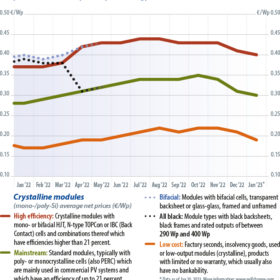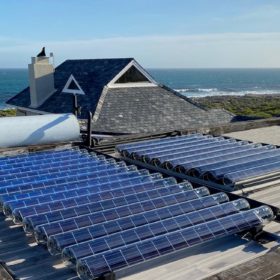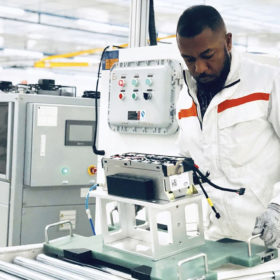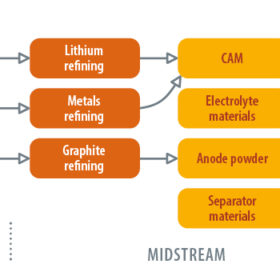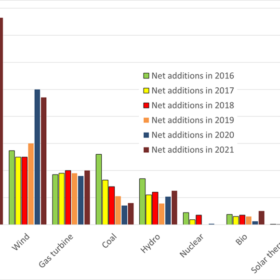What PV installers expect in 2023
Solar module prices continued to fall in January, and there is no end in sight. The main drivers impacting prices are lower shipping rates from China and the further recovery of the euro-US dollar exchange rate. Martin Schachinger, of pvXchange, expects other effects, such as slowly falling energy costs or polysilicon and wafer prices – which are in freefall – to further strengthen the trend in the coming months.
Developers accelerating construction of large-scale solar across Africa
The Africa Solar Industry Association (AFSIA) has identified the top five solar markets in Africa. Its latest report also looks at the most notable large-scale projects across the continent.
UK must act now to embed solar in energy transition
Tony Danker, head of the Confederation of British Industry, in January warned the UK is at risk of squandering the vast economic opportunities available to nations investing in the energy transition. Christophe Williams, CEO of solar thermal company Naked Energy agrees, and here spells out some of the urgent actions Rishi Sunak’s government must take to place solar thermal – and PV – at the heart of a green revolution.
Curtailment is not the enemy
A new report by IEA-PVPS Task 16 looks at the use of “implicit storage” to transform intermittent renewable sources such as solar and wind into firm power generation. It shows that the total cost of the electricity system transformation could be lowered with the optimal use of capacity overbuilding and dynamic curtailment.
Can Sensmet crack lithium?
Finnish startup Sensmet Oy says it has attained the lithium manufacturing ‘Holy Grail’ of real-time, continuous monitoring of the battery raw material. This would potentially unlock big savings in time and money.
Shaping the EU battery value chain
The new EU Batteries Regulation is a blueprint for product legislation, regulating the whole life cycle of batteries in the European Union. Advanced rechargeable and lithium batteries association Recharge says successful implementation of the new regulation requires the prioritization of safety, information reliability, feasibility, market surveillance, and enforcement.
Vanadium’s role in a just transition
The deployment of a vanadium flow battery at a fire station run by Native Americans illustrates the role that the energy storage technology can play in ensuring that nobody is disadvantaged by the shift away from fossil fuels.
Battery supply chain state of health
As the US Uyghur Forced Labor Prevention Act demonstrated, companies preparing to spend big on batteries are at risk of being blindsided by supply-chain-related legislation. Here are some tips on how US developers can anticipate policy curveballs.
Consumers have a right to know the energy make-up of goods
With energy certification already a must-have for any business which makes green energy claims, Ed Everson, chief executive of England-based, global certification company Evident, makes the case for firms to be required to make full disclosure of their energy sources.
The fastest energy change in history
Solar and wind are being installed at a rate that is three times faster than all other new electricity sources combined. This offers compelling market-based evidence that PV and wind are now the most competitive and practical methods for deploying new generating capacity.
